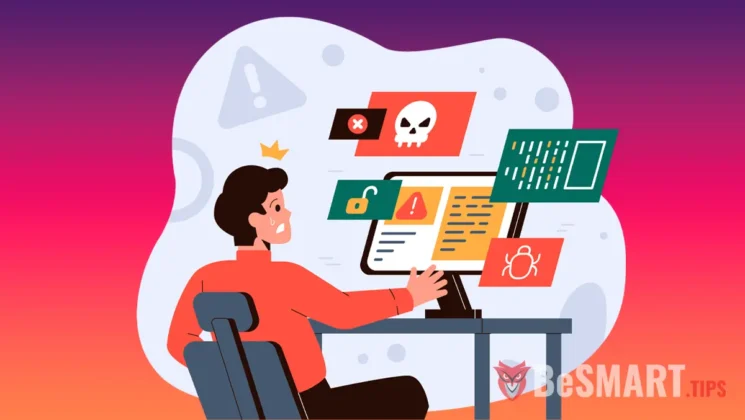Every PC or smartphone user should pay extra attention to information security. In this guide, we show you 10 points to keep in mind to secure your computer against hackers.
Even if it looks like your devices don't contain sensitive information, a compromised computer or smartphone can become tools in cyber attacks. You must understand that "sensitive data" does not only refer to passwords or banking information, but also to email addresses, phone numbers and browsing history, which can be exploited by hackers to manipulate vulnerable targets.
By protecting your computer, you not only ensure your personal security, but also contribute to a safer digital environment for other users. An infected computer or device can become a source of threat to other users and to the online infrastructure as a whole. Hackers can exploit vulnerable devices to launch cyber attacks, spreading malware, viruses and other threats globally.
How to secure your computer against cyber attacks?
Always install a reliable antivirus or anti-malware program.
Malwarebytes is an effective option, offering a free variant with a full system scan for Windows or Mac users.
Avoid installing pirated software or games.
Pirated software or games may contain malicious modifications and malware, putting your device at risk.
Do not open suspicious emails or dubious links.
Email messages remain one of the most common methods of spreading malware. Be cautious and avoid opening links or downloading files from suspicious messages.
Be wary of unknown or borrowed USB drives.
Connecting external devices can expose your computer to malware. Scanning these devices with an antivirus program is essential when such a device is connected to your computer.
Enable two-step authentication.
An additional security measure, two-step verification adds a layer of protection to your accounts by requiring a temporary code to log in.
Configure the firewall to filter unknown traffic.
A well-configured firewall can add an additional barrier against online threats. Most firewall software offers users the ability to filter traffic from unknown sources. With a well configured firewall and antivirus software you can secure your computer against hackers.
Avoid public Wi-Fi networks for sensitive activities.
To protect sensitive data, avoid connecting to public Wi-Fi networks when banking or shopping online.
Use strong and unique passwords for your accounts.
Avoid easy-to-guess passwords such as dates of birth or common names. Opt for complex passwords and use two-step authentication where possible.
Make regular backups of important files.
Regular backups can save data in the event of a ransomware attack or data loss.
Keep your operating system up to date.
Updating operating systems
Up-to-date operating system updates are essential to fix security vulnerabilities.
Resources:
- Malwarebytes – Provides robust anti-malware protection solutions for both operating system computers Windows, as well as for macOS, ChromeOS, Android and iOS.
- Microsoft Defender Firewall – The handiest solution for internet traffic filtering and LAN for Windows 11 and Windows 10.
- How to enable Windows Protected Print Mode on Windows 11
By keeping the above tips in mind, you can secure your computer against cyber attacks. Users who take a responsible approach to IT security become a solid barrier against cyber threats, thereby reducing their impact and spread.
